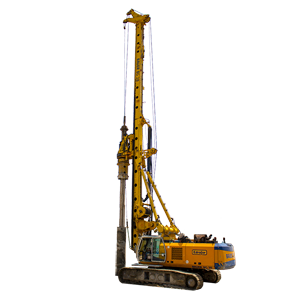As construction projects in Dubai continue to soar to new heights, managing groundwater effectively has become a paramount concern for contractors. Deep well dewatering in Dubai is essential for ensuring that excavation sites remain safe and dry, allowing construction work to proceed without delays. Drawing on the expertise of Khansaheb Sykes, a leader in providing dewatering solutions, this article offers ten essential tips for achieving effective deep well dewatering.
1. Understand Groundwater Conditions
Before embarking on any dewatering project, it's crucial to conduct a thorough assessment of the groundwater conditions at the site. This involves understanding the depth of the water table, the nature of the soil, and any potential geological challenges. For instance, in areas where the water table is particularly high, such as parts of Dubai, contractors may need to implement more robust dewatering strategies. Khansaheb Sykes offers free site surveys to help clients identify the best approach for their specific needs.
2. Choose the Right Equipment
Selecting the appropriate equipment is vital for successful deep well dewatering. Khansaheb Sykes provides various options, including deep well dewatering pumps, submersible pumps, and hydraulic submersible units. Each type of pump has its unique advantages, depending on the scale and specifics of the project. For example, a hydraulic submersible pump is ideal for sites where suction lift requirements exceed nine meters. By choosing the right equipment, contractors can ensure efficient water removal while minimizing operational costs.
Real-Life Example: Infrastructure Projects
Consider a recent infrastructure project where a contractor faced challenges due to high groundwater levels. By consulting with Khansaheb Sykes, they were able to select a deep well dewatering system that effectively managed water levels, allowing the project to stay on schedule.
3. Plan for Installation
Proper planning is essential for the installation of deep well dewatering systems. Contractors should develop a detailed installation plan that outlines the placement of wells, the type of pumps to be used, and the expected timeline for dewatering activities. This planning phase is critical to avoid any disruptions that could delay construction. Khansaheb Sykes provides expert guidance throughout this process, ensuring that contractors can implement their plans effectively.
4. Monitor Water Levels Regularly
Once the dewatering system is in place, it is crucial to monitor water levels continuously. This allows contractors to adjust the operation of the pumps as needed and ensure that groundwater levels remain stable. Regular monitoring helps prevent over-extraction, which can lead to subsidence and other geological issues. Khansaheb Sykes offers advanced monitoring solutions to help contractors keep track of groundwater levels in real-time.
5. Ensure Compliance with Regulations
In Dubai, adhering to local regulations regarding groundwater management is not just a best practice; it's a legal requirement. Contractors must familiarize themselves with applicable laws and guidelines to avoid penalties or project delays. Consulting with experts from Khansaheb Sykes can provide valuable insights into compliance issues, ensuring that all aspects of the dewatering process meet regulatory standards.
Real-Life Example: Regulatory Compliance
A contractor working on a commercial development project in Dubai faced potential fines due to non-compliance with groundwater regulations. By engaging with Khansaheb Sykes, they received the necessary guidance and adjusted their practices to align with local laws, ultimately avoiding costly penalties.
6. Use Wellpoint Systems Where Appropriate
Wellpoint systems are an effective method for managing groundwater in certain types of projects, particularly those involving large excavations. These systems utilize a series of small wells connected to a vacuum pump, allowing for efficient water removal while minimizing disturbance to the surrounding soil. Contractors should consider using wellpoint systems for deep excavations where traditional dewatering methods may be less effective.
7. Implement a Maintenance Schedule
Regular maintenance of dewatering equipment is essential to ensure optimal performance. Contractors should establish a maintenance schedule that includes routine inspections, cleaning, and repairs as needed. Khansaheb Sykes provides comprehensive maintenance services, ensuring that all equipment remains in peak condition throughout the duration of the project.
8. Prepare for Emergency Situations
In the unpredictable climate of Dubai, contractors must be prepared for emergency situations that may arise due to sudden rainfall or unexpected groundwater influx. Having a contingency plan in place, along with access to emergency dewatering pumps, can help mitigate potential delays. Khansaheb Sykes offers emergency pump hire services, allowing contractors to address unforeseen challenges quickly.
Real-Life Example: Emergency Response
During the construction of a new residential complex, a contractor faced unexpected heavy rainfall that threatened to flood the site. By quickly engaging Khansaheb Sykes for emergency pump hire, they were able to manage the situation effectively and keep the project on track.
9. Train Your Workforce
Proper training for personnel involved in the dewatering process is crucial for ensuring safety and efficiency. Contractors should invest in training programs that cover the operation of dewatering equipment, safety protocols, and emergency response procedures. With a well-trained workforce, projects can run smoothly, reducing the risk of accidents or equipment failures.
10. Evaluate and Adjust Strategies
Finally, contractors should continuously evaluate the effectiveness of their dewatering strategies throughout the project. Regular assessments can identify areas for improvement and allow for adjustments to be made as necessary. By staying proactive, contractors can enhance the efficiency of their dewatering efforts and reduce costs.
Conclusion: Take Action for Successful Deep Well Dewatering
In summary, effective deep well dewatering in Dubai is essential for the success of construction projects in the region. By following these ten essential tips, contractors can ensure that groundwater management is handled efficiently and effectively. For those in need of expert guidance and high-quality dewatering equipment, Khansaheb Sykes is the go-to provider in the Middle East.
Contractors looking to optimize their deep well dewatering processes should reach out to Khansaheb Sykes today. With a wide range of equipment and unparalleled expertise, they are equipped to help contractors navigate the complexities of groundwater management, ensuring project success every step of the way.





Comments